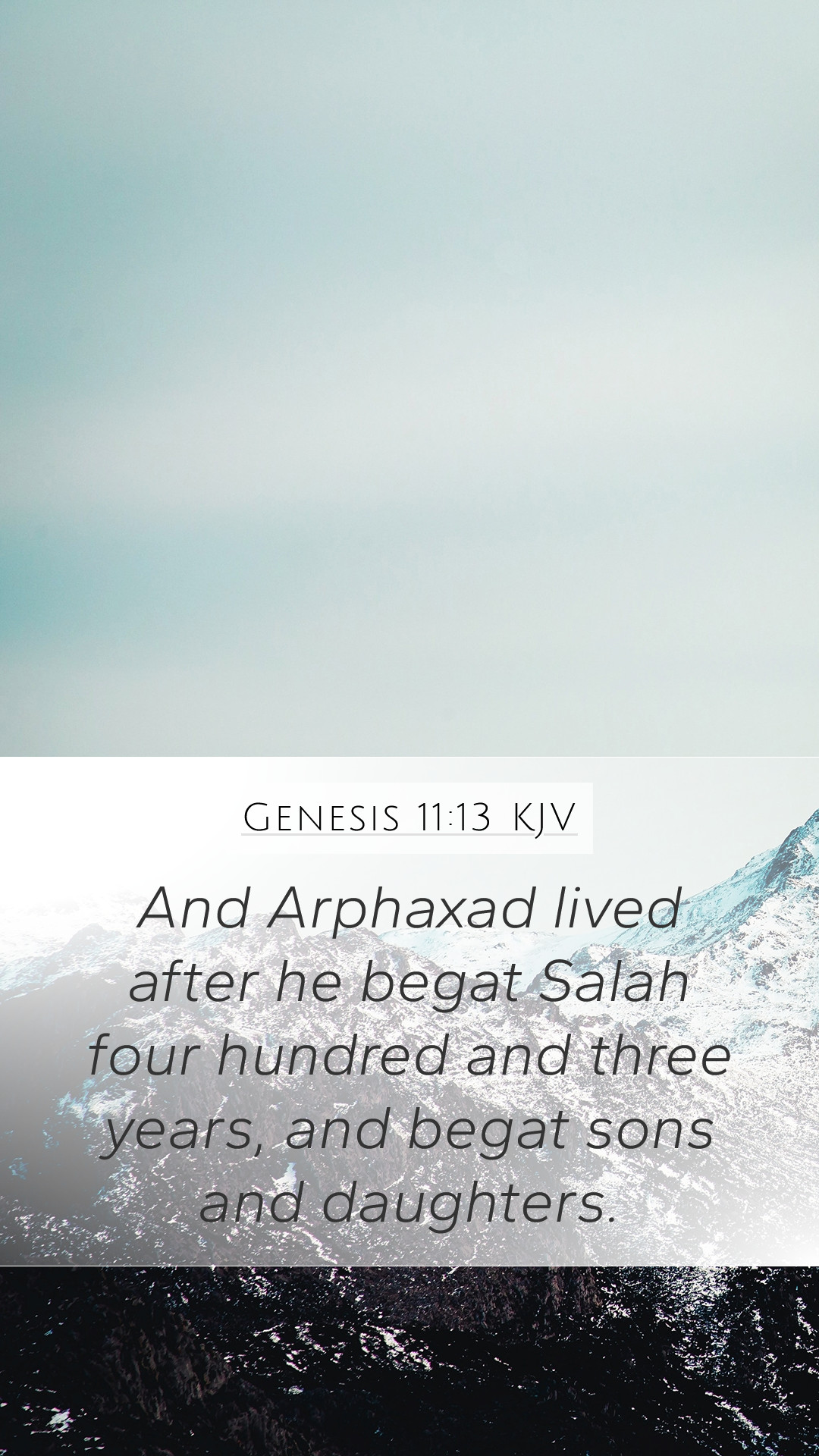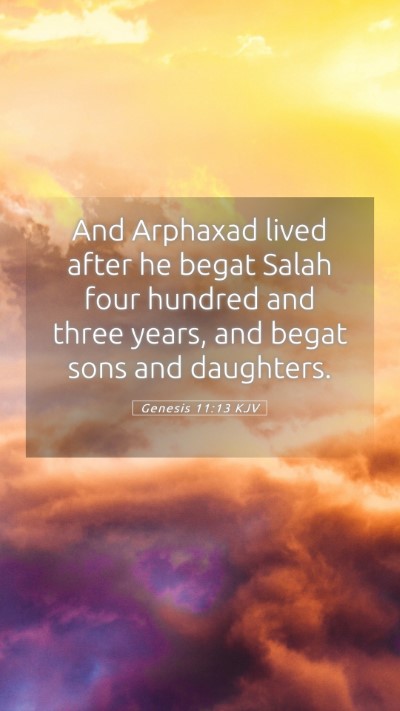Explanation and Commentary on Genesis 11:13
Genesis 11:13 states:
“And Arphaxad lived five-and-thirty years, and begat Salah.”
This verse is part of the genealogy presented in the Book of Genesis, which serves to establish the lineage from Noah to Abraham, illustrating God's covenant with humanity. The significance of these genealogies lies in their demonstration of God's ongoing promise and the unfolding of His divine plan through successive generations. The mention of Arphaxad marks a crucial link in the chain of ancestry that leads to significant biblical figures.
Insights from Commentaries
-
Matthew Henry's Commentary
Henry highlights the importance of genealogies in Scripture as not mere lists of names but as records that reflect God's faithfulness and the fulfillment of His promises. He notes that Arphaxad's father is Shem, marking a significant connection to Noah’s righteous line, thus reinforcing God's preservation of a faithful remnant.
-
Albert Barnes' Commentary
Barnes provides insights into the age of Arphaxad at the time of Salah’s birth, emphasizing the patriarchal timeline and its significance in understanding the duration of human life before the flood compared to post-flood generations. This helps to demonstrate the gradual shift in lifespans after the deluge.
-
Adam Clarke's Commentary
Clarke elaborates on the significance of the names in the genealogical record, where each name carries meaning that is reflective of the character and attributes of God. Arphaxad’s name is linked to the idea of 'strength,' suggesting the strength imparted to him by God to fulfill His purposes.
Theological Significance
Genesis 11:13 serves to connect the lineage of Jesus Christ back to Noah, establishing significant theological implications for understanding salvation history. The genealogical framework in Genesis reveals God's intentional plan through individual lives and provides a foundation for the overarching narrative of redemption found throughout Scripture. Each name and lineage emphasizes God’s sovereignty and the unfolding of His covenant.
Key Themes in Genesis 11:13
- Covenant and Promise: The genealogical record underscores God's covenant with humanity and His promise to never abandon His creation.
- Divine Sovereignty: The naming of generations illustrates God’s control over history and highlights His selection of certain individuals to fulfill His purposes.
- Faithfulness: The longevity of these patriarchs reflects the faithfulness of God in preserving a line through which the promise of redemption would come.
Application to Daily Life
Understanding Genesis 11:13 can remind us of the importance of our heritage and the legacies we leave for future generations. As we engage with Scripture, we are called to recognize the impact of our lives and choices, not only for ourselves but for those who come after us. It encourages us to ponder how God has woven our stories into His grand narrative and what role we play in His ongoing creation.
Cross References
- Genesis 10:22-24: Discusses the descendants of Shem, linking back to Arphaxad.
- Luke 3:36: Adds to the genealogy that includes Arphaxad leading to Christ.
- Hebrews 11:5: Reflects on the faith of the ancestors linked through these generations.
Conclusion
In conclusion, Genesis 11:13 serves as a reminder of the intricate ways God works through history, preserving His promises through generations. This verse, while seemingly simple, encapsulates the essence of Bible verse meanings by showcasing how foundational genealogies can enrich our Bible verse explanations and Bible study insights. As we explore these genealogies, we find that they hold a deeper significance that enriches our understanding of Scripture.


